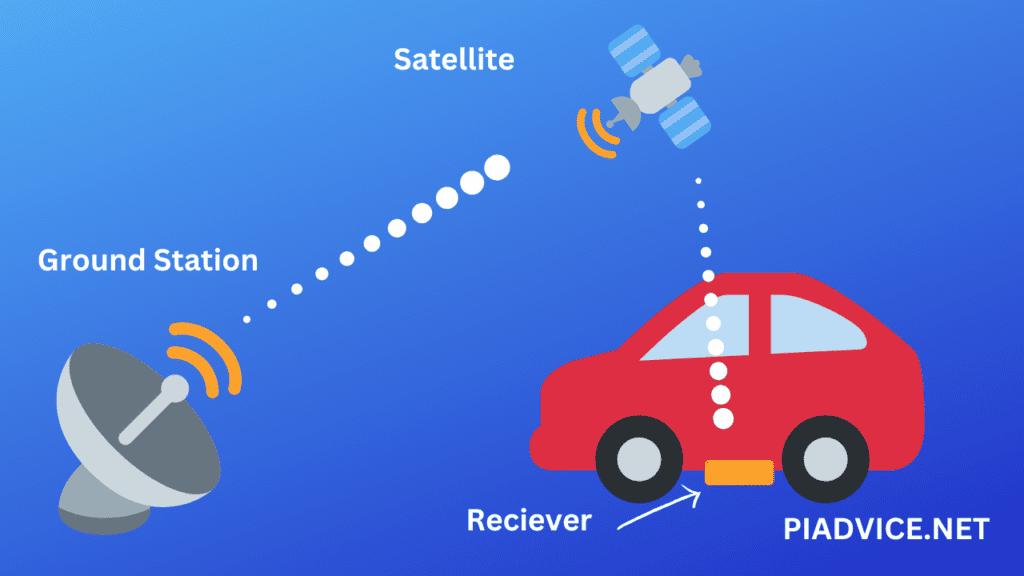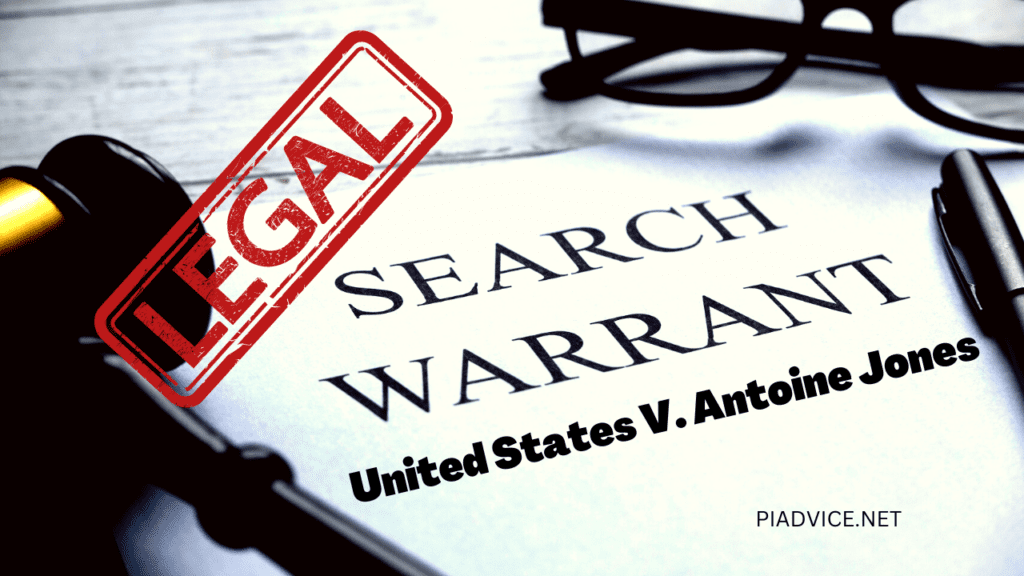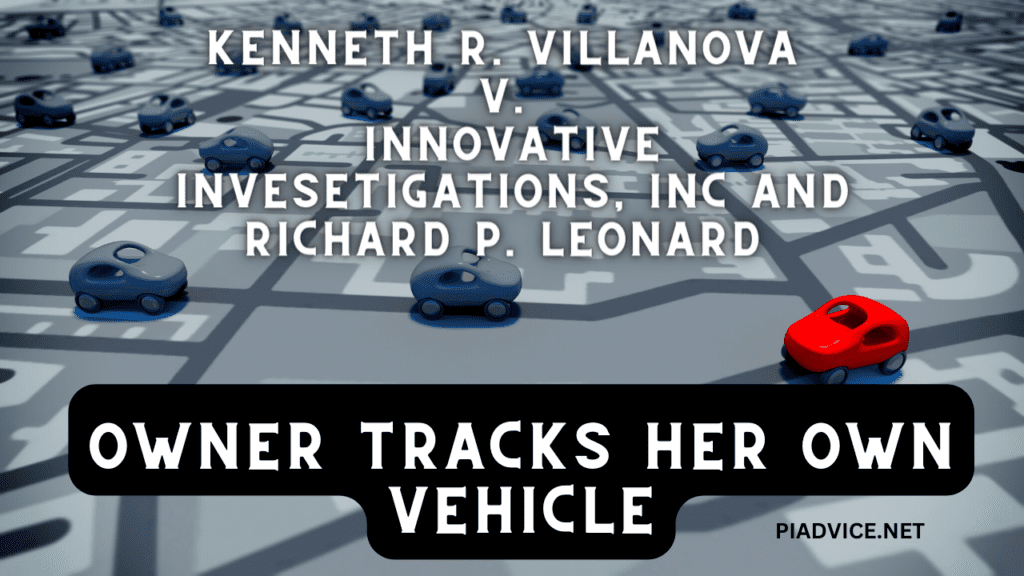Technology advancements have made it easier for investigators to track individuals without being detected. There are various ways surveillance efforts are conducted on individuals and GPS tracking devices are one of them. Global Positioning Systems or GPS devices have been used by law enforcement and private investigators to track the whereabouts of individuals without being detected.
The Supreme Court Decision in 2012 changed the landscape as to how the public, private investigators, and law enforcement can use GPS tracking devices. Generally speaking, case law allows for the use of GPS devices in the following situations:
- Law enforcement may only use GPS devices with a warrant and probable cause has led to the request for a warrant.
- Companies have the right to place GPS tracking systems on company vehicles without providing that knowledge to the driver of the vehicle.
- Individuals are able to place GPS devices on vehicles they own even if that ownership is shared with a spouse.
- A company or individual may not place a GPS device on a vehicle they do not own.
- Some states specifically identify it as a crime to place a GPS device on a vehicle without permission which comes with jail time and a fine.
Contents
- 1 How do GPS Devices Work?
- 2 Laws and Case Law Governing the Use of GPS Tracking Devices
- 3 4th Amendment
- 4 United States v. Antoine Jones
- 5 Carpenter v. United States
- 6 Riley v. California
- 7 Monte v. Shearer (Plaintiff) v. American Oak Resort and Art Jensen
- 8 Kenneth R. Villanova (Plaintiff) v. Innovative Investigations, INC., and Richard P. Leonard (Defendants)
- 9 Thoughts on this Court Case Regarding GPS Tracking
- 10 United States of America (Plaintiff) v. Henry R. Brown (Defendant)
- 11 Yates Brothers Motor Company, Inc. v. Donna Watson
- 12 Leon Legin (Plaintiff) v. St. Louis Coca-Cola Bottling Co. (Defendant)
- 13 Cunningham v. State Dep’t of Labor
- 14 Can Private Investigators Use GPS Trackers?
- 15 Are GPS trackers an Invasion of Privacy?
- 16 What Are the Risks of Someone Placing a GPS Tracker on a Vehicle?
- 17 Final Thoughts and Opinions on GPS Trackers and the Law
How do GPS Devices Work?
A GPS system is made of three parts which include satellites, ground stations, and receivers.
Satellites are best described as stars as we know where they are at all times.
The ground stations confirm that the satellites are in the area where they are supposed to be.
And the receiver, which you might find in a phone, car, or GPS tracking device acts as a listening device to the satellites in the sky. These devices determine how far they are away from the satellites.
The receiver calculates how far it is from four or more satellites which allow it to determine exactly where the receiver is.
There are 24 operational satellites in the sky according to GPS.gov. GPS works 24 hours a day regardless of weather conditions anywhere in the world. It’s pretty amazing technology.

Laws and Case Law Governing the Use of GPS Tracking Devices
4th Amendment
The foundation of laws and court rulings as it relates to GPS devices really begins with the 4th Amendment in the Bill of Rights which states the following:
“The right of the people to be secure in their persons, houses, papers, and effects, against unreasonable searches and seizures, shall not be violated, and no Warrants shall issue, but upon probable cause, supported by Oath or affirmation, and particularly describing the place to be searched, and the persons or things to be seized.”

United States v. Antoine Jones
In January of 2012, the U.S. Supreme Court gave a groundbreaking ruling that essentially said law enforcement must obtain a warrant before attaching a GPS device to an individual’s vehicle. The Supreme Court leveraged the 4th Amendment in the ruling basically saying that since someone would have to physically attach a GPS tracking device to someone’s vehicle, it was a physical intrusion on the individual’s vehicle.
This basically laid the foundation for law enforcement to need a warrant before tracking someone’s vehicle using a GPS tracking device and have probable cause to request a warrant in the first place.

Carpenter v. United States
There are numerous ways people are tracked and surveilled. You can read about the different types of surveillance here if you are interested.
In this specific Supreme Court ruling, it was decided that law enforcement obtain a search warrant, supported by probable cause to obtain at least 7 days of historic cell-site location information associated with an individual’s phone.
Again, the court supported the expectation of privacy even historically of someone’s movements and location.
Riley v. California
In June 2014 the Supreme Court yet again ruled on an important privacy situation. The court ruled that law enforcement obtain a warrant before searching the contents of someone’s phone.
In this particular case, it focused on the historical location information.
Court Cases Related to Private Investigators and Private Citizens Using GPS Devices to Track Individuals
Monte v. Shearer (Plaintiff) v. American Oak Resort and Art Jensen
In this messy court case, Shearer was injured on the resort property owned by Art Jensen. The defendant eventually hired an unlicensed private investigator in the state to attach GPS tracking devices on both the claimant’s vehicle and the claimant’s wife’s vehicle.
The owner of the business originally stated that he specifically told the “private investigator” to not track the claimant’s vehicle with a GPS tracker.
The owner later changed his statement (as he was not being truthful) indicating that he purchased the GPS tracker with the explicit reason of having the private investigator place it on the claimant’s vehicle.
They had hoped they would be able to obtain some contradictory evidence against the claimant.
What is interesting about this court case is that there was no action specifically taken against the owner regarding the surveillance.
The summary did manage to share that the owner stated the following:
…”Well, I—I you know, at the time we didn’t know what was legal, what wasn’t legal so, yeah, Chris was going to Terry’s house so Terry got them, yes.” Miller asked, “In your direction?” Jensen replied, “Yes.” Miller also asked, “You caused Mr. Bunge to be in possession of the tracking device[s]?” Jensen answered, “Yes.”
- Terry Foster – Associate of Jensen
- Mr. Bunge – Unlicensed Private Investigator
- Miller- Attorney

Kenneth R. Villanova (Plaintiff) v. Innovative Investigations, INC., and Richard P. Leonard (Defendants)
In this Superior Court of New Jersey case in May of 2011, Mr. Villanova claimed that Innovative Investigations, Inc invaded his privacy. The situation arose through the divorce of Mr. Villanova and his wife.
Mrs. Villanova hired the investigation company to investigate her husband’s possible infidelity. During the course of their employment, the investigation company suggested Mrs. Villanova place a GPS tracking device on their family vehicle to track Mr. Villanova’s whereabouts. The vehicle was owned by the couple and she placed the GPS tracker in the glove box. It was noted that the vehicle was only personal in nature and not used for work purposes. Mrs. Villanova paid the insurance premiums through a joint account between her and her husband.
Mr. Villanova, who was involved in law enforcement attempted to claim he used his personal vehicle during his law enforcement duties. The judge didn’t appear to believe his assertion as it is common knowledge that law enforcement doesn’t want to reveal personal information about themselves that can lead back to them.
The GPS was in the vehicle for 40 days. Mrs. Villanova indicated from time to time she would check the whereabouts of the GPS device. It was also shared that there was no evidence that any information regarding Mr. Villanova’s whereabouts was shared with the investigator.
It was also revealed that Mr. Villanova knew he was under surveillance and had other law enforcement officers run interference for Mr. Villanova by pulling over the investigator and questioning him.
While Mrs. Villanova very well could have been passing information to the investigator, the plaintiff and their lawyers never asked Mrs. Villanova that question in the deposition nor deposed the investigator.
Mr. Villanova attempted to make it sound as if because a GPS device was within the vehicle, he was under surveillance 24 hours a day for 40 days. However, this is not the case as the investigator only billed Mrs. Villanova for 27 hours of surveillance time which included a two-investigator surveillance period as well.
Thoughts on this Court Case Regarding GPS Tracking
It is almost implied that if there had actually been some sort of negative effect from the GPS being within the vehicle, or some evidence that Mrs. Villanova was passing on information to the investigators, the court may have entertained the complaint.
The investigator only followed Mr. Villanova in public spaces where Mr. Villanova had no expectation of privacy.
There was no tort or harm that came as a result of the GPS device being placed in Mr. Villanova’s vehicle. He didn’t know it was in there so it couldn’t have affected him. If the claim was that being under surveillance caused some sort of stress, again, Mr. Villanova was only documented in public areas and when the investigator truly felt as though Mr. Villanova knew he was under surveillance, they discontinued surveillance efforts. And that is a good decision by the client and the investigator.
United States of America (Plaintiff) v. Henry R. Brown (Defendant)
The appeal case established some case law related to using a GPS device to track a vehicle with the permission of the owner.
Mr. Brown’s original hearing lead to his being sentenced to life in prison in 2006 for conspiring to distribute more than five kilograms of cocaine.
Mr. Brown essentially wanted to exclude evidence that was presented due to the United States v. Jones case that took place in 2012. His appeal was denied.
There is quite a bit involved in this case, but the most important parts regarding this case and GPS tracking were shared.

Yates Brothers Motor Company, Inc. v. Donna Watson
This is a case where a vehicle dealer sold a vehicle to an individual and appeared out of negligence look to find reasons to repossess the same vehicle.
What was interesting about this case which was tried in Texas is that the vehicle dealer secretly attached a GPS device to the vehicle of Donna Watson so they could later repossess the vehicle. Information detailing whether the GPS device was placed on the vehicle before it was sold to Donna Watson or after the vehicle dealer decided it wanted to repossess the vehicle.
It was determined that it was illegal to place a GPS device on a vehicle without the owner’s knowledge according to Texas state law.
Texas Penal Code Sec. 16.06 – Unlawful Installation of Tracking Device
Doing so will result in a Class A Misdemeanor resulting in a possible 1-year sentence in the county jail and up to a $4,000 fine.
The law explicitly states that a private investigator must get permission from the owners of the vehicle to attach a GPS tracking system to it.
While this is specific to the state of Texas, there is a pattern of case law reflecting these court cases.
Leon Legin (Plaintiff) v. St. Louis Coca-Cola Bottling Co. (Defendant)
In this court case, Mr. Legin was an employee who serviced vending machines and collected money from them.
It was determined that some of those machines were coming up short in the funds that should have been in there as a result of the sales.
The company decided to place GPS tracking devices on the work vehicles that were driven by individuals that the Company wanted to investigate further.
Mr. Legin drove the company vehicle on and off the clock as did other employees.
While under investigation nothing changed for Mr. Legin. His pay, hours, etc.. all remained the same. He was later notified that he had been under investigation along with others of different races (as Mr. Legin was contending that it was racially motivated). He was also notified he was cleared of any wrongdoing.
In regards to the GPS portion of this court case, it was contended that it was an invasion of his privacy to have a GPS device on the company vehicle.
In short, for various reasons and legal precedents, the court did not agree with Mr. Legin and essentially said that a company has the right to place GPS devices on their vehicles without consent of employees.
Cunningham v. State Dep’t of Labor
In this case, a government employee was believed to be committing time fraud. In order to obtain evidence of this a GPS tracking device was placed on the employee’s personal vehicle without a warrant which would have been required per United States v. Jones as previously discussed.
The action was justified but not effectively or reasonably by the court and there were many dissenting opinions on the decision made by the court to justify the methods to track the employee’s whereabouts. The tracking was more than just the employee’s work time. The tracking extended into the off time, nights, weekends, and even vacation time.
To read the decision and the justification, a reasonable person would come to the conclusion that there was outside influence on this decision in my opinion as a rational person could not see how the state was invading the privacy unreasonably of this employee, albeit a bad employee.

Can Private Investigators Use GPS Trackers?
Based on current case law, private investigators should avoid placing GPS trackers on vehicles unless it is requested by the owner of the vehicle. A court case will eventually go against a private investigator (if it hasn’t already) for using GPS trackers and that private investigator will be a cautionary tale.
Are GPS trackers an Invasion of Privacy?
If you have read through some of the provided case summaries you will see that GPS trackers are indeed an invasion of privacy as it relates to law enforcement if they do not have a warrant to attach a GPS device to a vehicle.
If someone does not have permission from the owner of a vehicle to attach a GPS tracker to someone’s vehicle, it will likely be considered an invasion of privacy.
What Are the Risks of Someone Placing a GPS Tracker on a Vehicle?
Aside from being caught in the act of attaching a GPS tracker to a vehicle if someone is caught doing this in a state where it is specifically illegal, jail time and fines could impact the individual.
There is quite a bit of case law working against anyone unlawfully attaching a GPS tracker to a vehicle that does not belong to them.
Final Thoughts and Opinions on GPS Trackers and the Law
The opinion of those involved investigation industry that can be trusted, error on the side of protecting the privacy of individuals and not working in the gray area of the law. If a private investigator does not investigate legally, evidence could be thrown out of court.
Investigators that are liberal in their philosophies of using GPS devices are a liability to anyone that chooses to hire them for investigation purposes.
How could law enforcement be required to show probable cause, and require a warrant to place a GPS tracking device on a vehicle but the general public be not required to do so (outside of the case law discussed earlier)?
There are signals throughout the cases shared that are mixed in outcomes however I personally believe that the decisions that justified the use of GPS tracking without a warrant were made in error and contradict the law and caselaw in other areas. These outliers would be an exception, not the rule or justification to use GPS devices on vehicles without the consent of the individual that owns the vehicle.
The case previously mentioned, Villanova v. Innovative Investigations, Inc, described a way of partnering with a client to use a GPS device without breaking the law. In the past, I have personally heard of investigators approaching the use of GPS tracking devices in the same manner.
Have the owner of the vehicle, buy, attach and monitor the device on their own. Case law seems to support that action as being legal. The gray area can be as to whether that information is shared with a private investigator.
I am not a lawyer or legal scholar and you can come to your own conclusions. This article in its entirety is not legal advice. While the author does share his own opinions concerning the topic, they are just that. If you are considering using GPS tracking, you are responsible for your own actions. Ignorance is not innocence. Be sure to check your local and state laws surrounding this subject.

Recent Posts
Hawaii is probably one of the most interesting states to work as a private investigator if you are not used to the culture or a native of the state. And if you are not a local, that is something...
How to become a private investigator in Georgia
